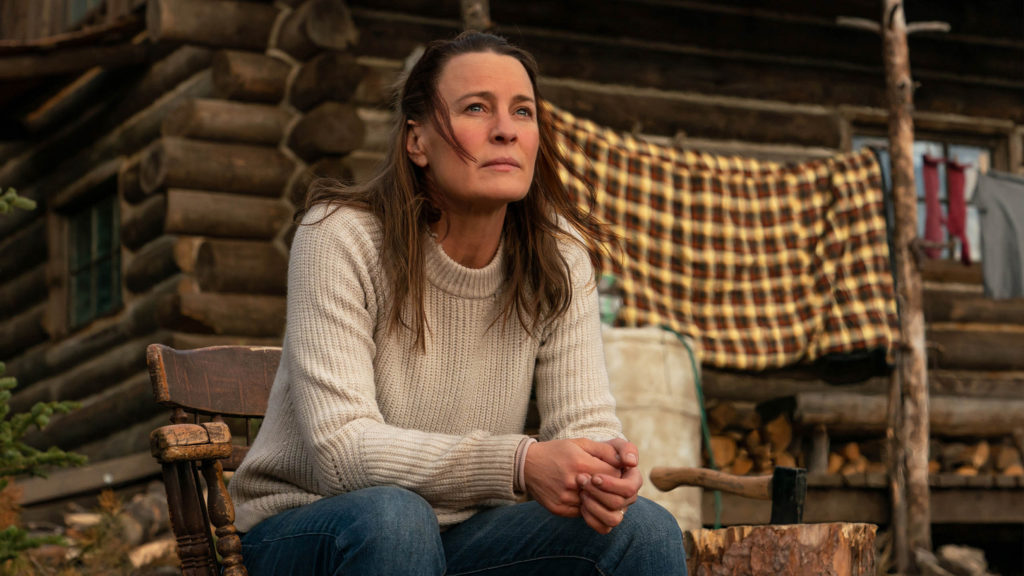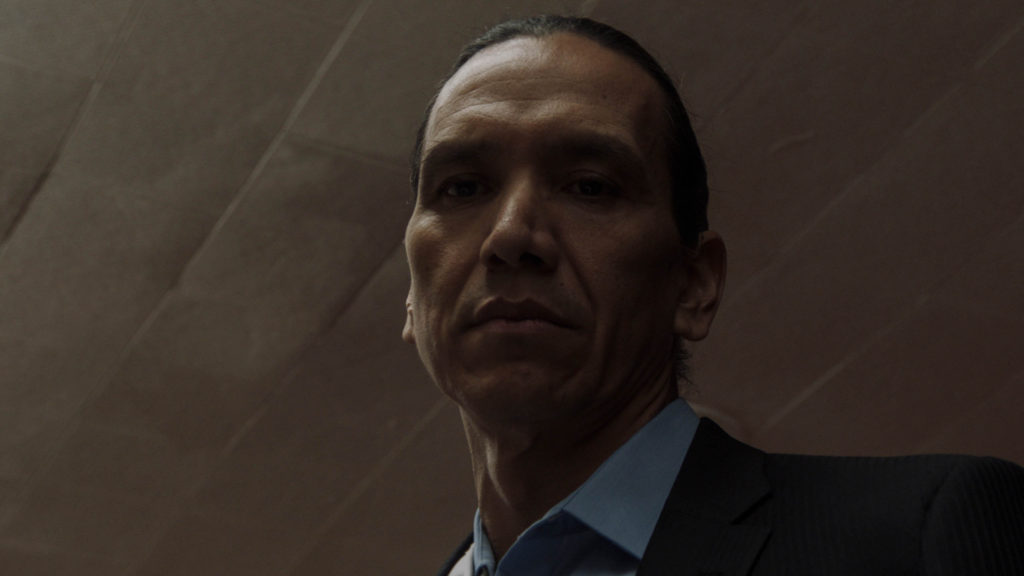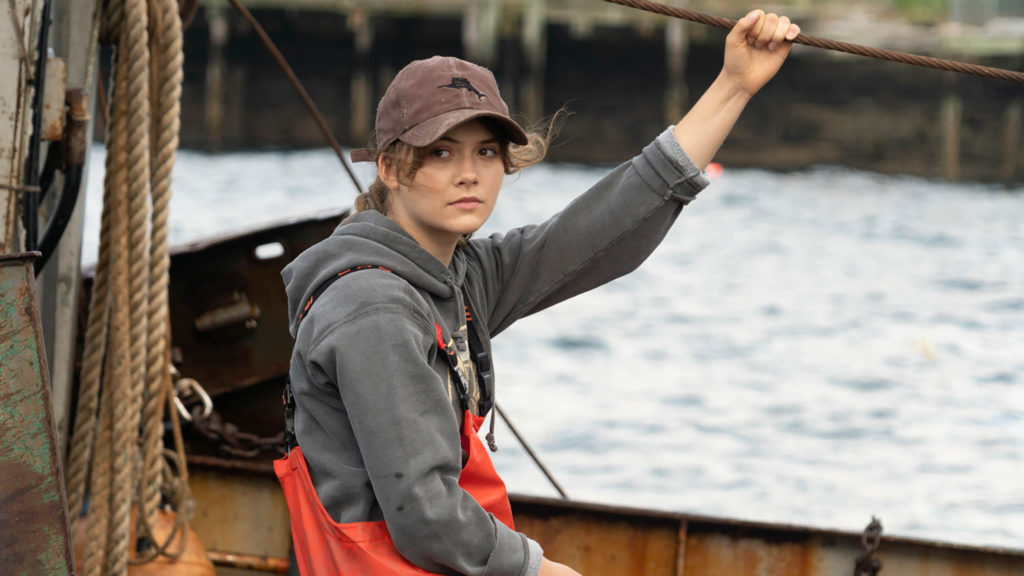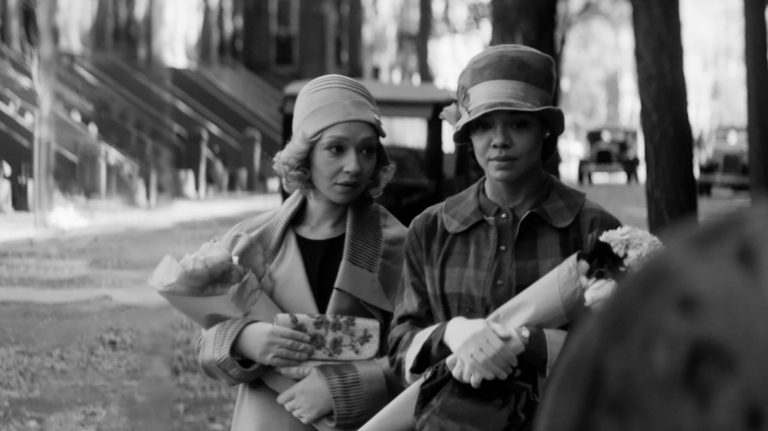Passing (2020 | USA | 98 minutes | Rebecca Hall)
Tessa Thompson and Ruth Negga bring incredible interiority to Rebecca C. Hall’s adaptation of Nella Larsen’s acclaimed Harlem Renaissance novel about two friends divided by appearances in 1920s New York.
When we meet Irene (Thompson), it’s a sweltering day in New York. She’s shopping for her son’s birthday gifts and taking refuge from the heat on a breezy hotel tearoom. Though her eyes dart anxiously from beneath the brim of her gauzy hat, society around her barely notices and affords her the many conveniences of passing for a white society lady. There, though, she’s spotted by Clare (Negga), a now-unrecognizable old childhood friend, whose dyed blonde hair and light skin have allowed her entry into a high society life, complete with frequent trips abroad, a child in a Swiss boarding school, and a marriage to a wealthy racist banker.
Irene is happy with the life she’s created for herself — a successful marriage to a doctor (Andre Holland), a beautiful brownstone in Harlem with a maid, and a prominent role for herself as a leader of a local civic organizations — and eager to preserve this bubble of upper-class Black happiness for her two boys as long as possible. Clare, meanwhile, finds herself lonely and longing for the life and community that she left behind. Overcoming Irene’s initial resistance, Clare’s increasingly frequent visits rekindle a friendship while eventually threatening both her own secret as well as her friend’s delicate emotional balance. Hall’s choice of a 4:3 ratio and an intricate sound design keeps the focus on her cast’s expressive performances, which often are required compensate for a script that’s light in explaining the burgeoning jealous paranoia that causes the friendship and Irene’s sanity to fray.
Shot in lustrous black and white, the film portrays the infrequently seen pleasures of upper-class Harlem: from home life to bridge nights, glittering cocktail parties, and evenings at jazz clubs with dancing and conversations amid local society and the curious or adventurous white intellectuals paying a visit to the thriving scene. Frustrations with plotting aside, it’s a beautifully filmed acting showcase that builds to an intense and compelling finale.

Land (2020 | USA | 89 minutes | Robin Wright)
In her feature film directorial debut, we sit with Robin Wright and her immense grief as she retreats to an isolated mountain cabin where she attempts to heal with the help of nature, a saintly hunter, and a very good dog amid breathtaking scenery. With sparse dialogue and a light plot — her character leaves her big city life in the wake of an unspeakable tragedy (literally, she won’t talk about it to anyone), drives a rented pick-up trip to an abandoned family house, has her guide bring the truck back to the agency, and attempts to make it on her own — much of the film is a one woman show of physical determination and internal emotional turmoil. Wright is more than up to the challenge.
As she struggles to stay alive with limited supplies and negligible survival skills through punishing winter weather, she encounters passing wildlife: wolves, a hungry bear, and a fortuitously passing hunter played by Demián Bichir. Though she remains steadfastly withdrawn, his stoic presence provides a welcome scene partner for Wright whose own story gives shape to her character’s emotional journey from self-obliteration to rebirth. The arc may be familiar, but it’s told with confident direction and vulnerable physical performances with cinematography that makes the natural world a co-star.
I sincerely hope that the Calgary tourist department (whose forested mountains stand in for Wyoming) contributed to the production budget, because even if I never want to be in a position to skin my own dinner, I would certainly like to pay a visit to that part of the world, preferably at any time other than “murderous blizzard” season.

Wild Indian (2020 | USA | 87 minutes | Lyle Mitchell Corbine Jr.)
Native American drama Wild Indian is a dark and intentionally tough hang about two friends who grew up on a Wisconsin reservation amid poverty and abuse. One commits an inexplicable violent crime, the other helps to cover it up. We catch up with them decades later to find that one of the pair spent the ensuing years in and out of prison, emerging from jail tattooed, looking for work, and sleeping in a tent in his sister’s back yard. The other forged a successful professional life with long golfing lunch hours and easily dominated jittery coworkers, and a beautiful wife and child waiting in his well appointed home. The contrast between the shape of their lives, their success at finding happiness and processing guilt, and the eventual confrontation takes the narrative on some surprising turns.
Working with a predominantly Native cast, director Lyle Mitchell Corbine Jr. revels in the challenge of connecting a deeply personal story to larger issues of generational trauma, going as far to frame the coolly-shot modern day story with an impressionistic lushly filmed endcaps about an Ojibwe man suffering from smallpox in the wake of early colonialist contact. There are some stumbles along the way, but it’s hard not to respect the effort and end results. In particular, Michael Greyeyes creates a terrifying character who evokes sympathy while being utterly impossible to like. It’s an impossibly tricky balance, and it just about works.

CODA (2020 | USA | 111 minutes | Siân Heder)
In pre-pandemic times, I’d watch a nice indie drama like CODA — about a hearing child in a deaf family who wants to be a singer — and immediately wonder how it would do out in the big scary world of theatrical exhibition beyond film festivals. After the last year, though, I barely thought about whether it would draw a crowd at the multiplex. My first thought was “yep, like all other movies, this sweet-natured movie will easily find a home on a streamer and it will be fine.” It turns out that was a vast understatement: Siân Heder‘s opening night feature also became the first major acquisition of the festival when it was picked up by Apple TV+ for a cool $25M+ dollars, besting Palm Springs‘s Sundance record.
As for the film itself, Emilia Jones plays Ruby (the Child Of Deaf Adults referenced in the title), a good kid who regularly wakes up before dawn to accompany her father and brother on their fishing boat in Gloucester, Massachusetts, interpreting for them when it’s time to sell the day’s catch. On her first day of senior year, despite immense stagefright and little experience, she follows the lead of an unrequited crush (Ferdia Walsh-Peelo) and joins a choir club whose stereotypically sassy and assertive scarf-aficionado director (Eugenio Derbez) discovers hidden talents that could lead her to a spot at one of the nation’s most prestigious music colleges. Sure, it’s about as many coming-of-age cliches as you could fit in a couple of hours, but the commitment is so pure and the execution so good that it’s hard to complain.
It works, in large part, because after it settles into the conventional structure that pits a prodigy into a choice between familial responsibility and personal passions, the film gives the characters room to breathe, the actors moments to shine, and folds in some unique issues to the deaf community. While all teenagers are embarrassed by their parents, few of them are responsible for accompanying them to the doctor to navigate a garrulous stoner father’s (Troy Kotsur) description of his genital itching. And most parents fret about their children leaving the nest, but the departure takes on increased stakes when that kid has also been the family’s primary link to the hearing world.
Emilia Jones has exceptional screen presence and a voice that makes her rapid ascent fully credible. Her chemistry with her family and nascent crush sells the story and there’s plenty of humor and the requisite amount of earned sentimentality. Marlee Matlin, as the too-glamorous mother among a family of rough-around-the-edges fisherfolk, will certainly inspire laughs and tears. While these issues about accessibility, inclusion, and autonomy convey some important lessons for both deaf and hearing communities, they’re conveyed with a light touch and don’t interfere with the beats of the genre, making for a rewarding viewing experience that tugs at the ol’ heartstrings.
Several of the films have encore screenings, though individual ticket availability is limited. Header image: Passing by Rebecca Hall (Courtesy of Sundance Institute)




